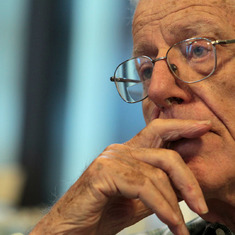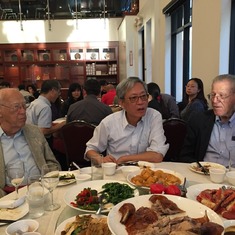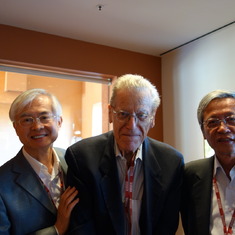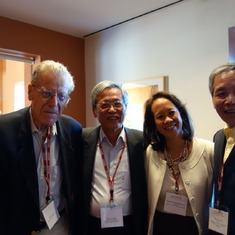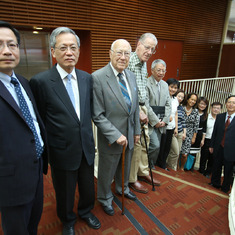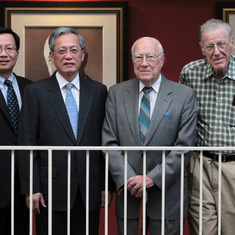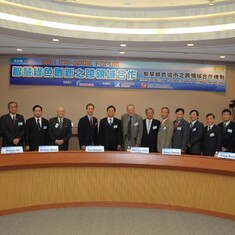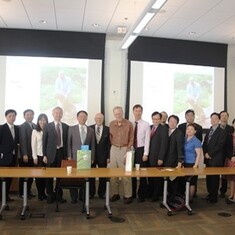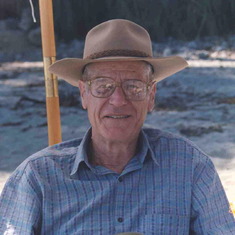In 1989, I joined RAND. Harry visited RAND when there were seminars that interested him or when he was invited to RAND for special occasions. He would often ask me to sit next to him, ask me what policy issues I was working on at the time, and point out the key aspects that I should address. On the other hand, as he was asked or expected to sit at the front row, I felt out of place especially when I was prominently sandwiched between Harry and Jim Thomson, another RAND President Emeritus.
My last communications with Harry were on September 17 and October 20, 2015. On the former date, I sent him my space commentary at 4:24 pm and he pointed out the essence of the piece and gave me astute feedback on what I should continue to emphasize at 5:24 pm. On the latter date, I sent him another space commentary at 5:41 pm and he did the same at 8:47 pm.
For almost forty years, Harry was my advisor, colleague and friend. He was always interested in knowing about my work. He listened intently and followed up with penetrating comments and questions. As for his own interests at the time, he would describe them enthusiastically only when I asked.
He was a scholar, RAND president, professor, and senior government official, and he impacted RAND, US and the world. I got to know his accomplishment and influence mostly indirectly by reading his works and those of others, because in our conversations he focused on me and my work.
Harry, I miss you. When I write from here on, I will recall what you told me in the past, as your comments and suggestions are always applicable to my work.

